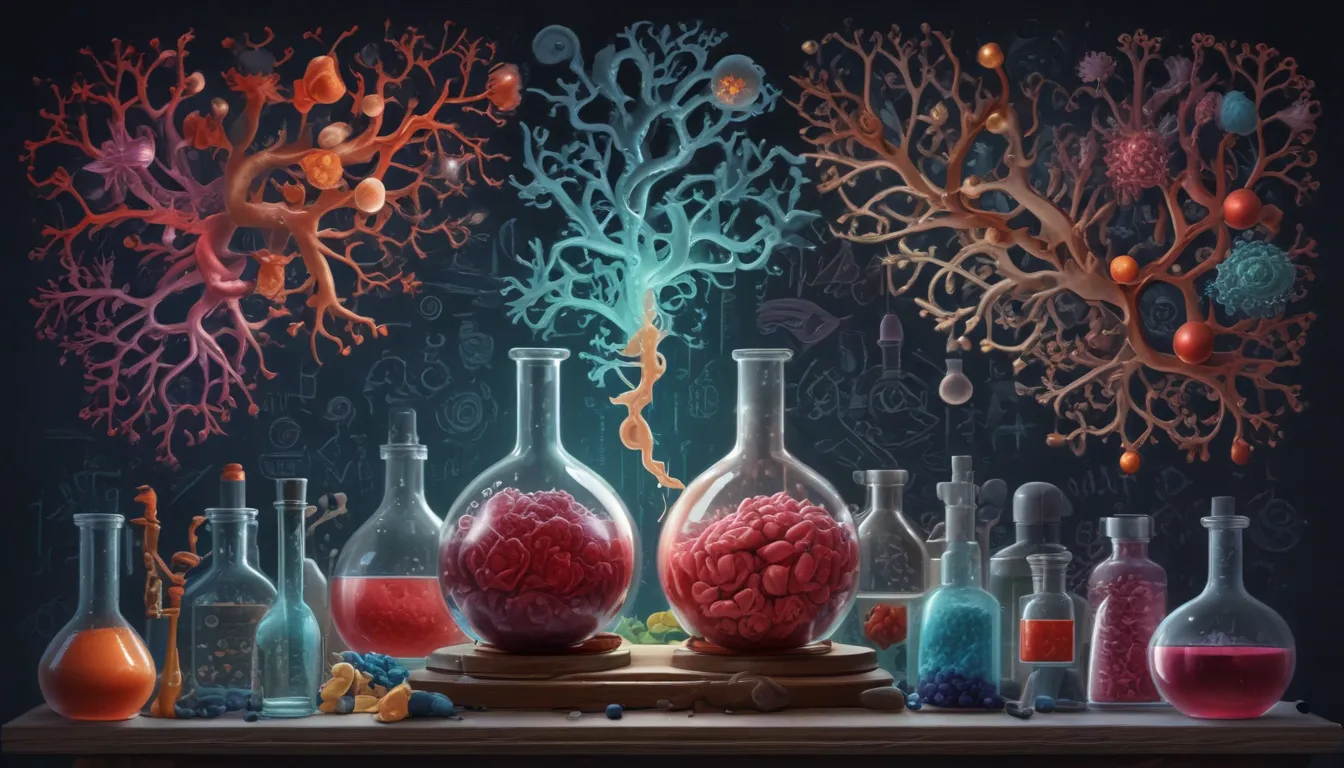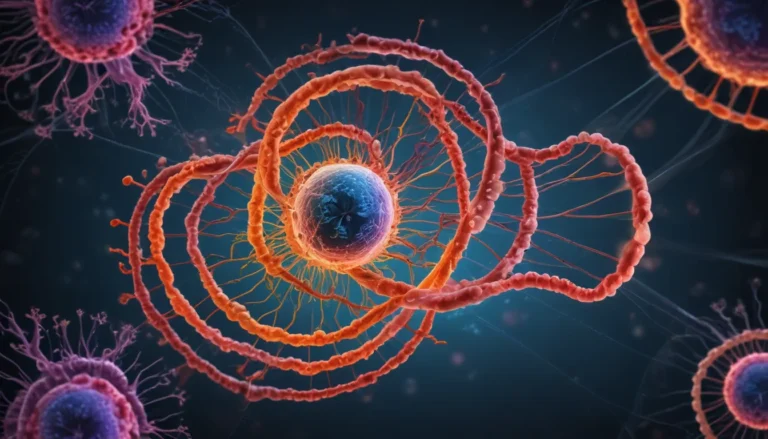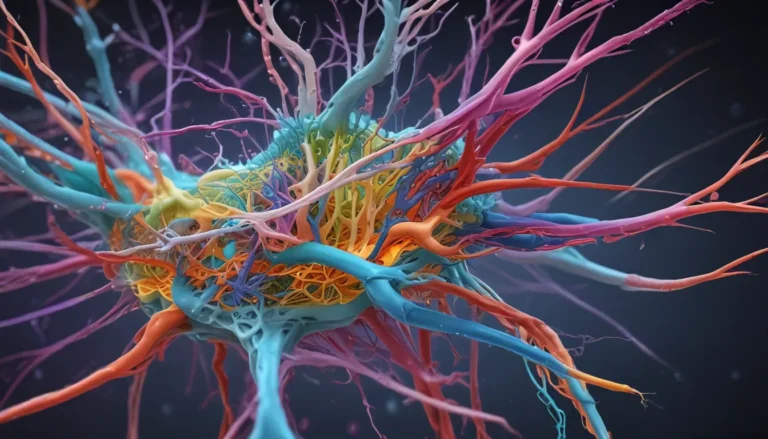A Note About Images: The images used in our articles are for illustration purposes only and may not exactly match the content. They are meant to engage readers, but the text should be relied upon for accurate information.
Welcome to the captivating world of biochemistry, where the intricate dance of molecules unfolds to reveal the mysteries of life. Biochemistry explores the chemical processes and molecules that shape living organisms, from DNA to proteins, enzymes, and metabolic pathways. In this article, we will journey through 17 extraordinary facts that showcase the significance of biochemistry and its impact on human health, medicine, and the environment.
Unraveling the Blueprint of Life: DNA
At the core of biochemistry lies DNA, the molecule that holds the genetic information essential for life. Composed of four nitrogenous bases – adenine, thymine, cytosine, and guanine – DNA forms the iconic double helix structure. This remarkable molecule serves as the blueprint for the development, growth, and functioning of all living organisms, driving the intricate processes that define life.
Proteins: The Versatile Building Blocks
Proteins are the workhorses of life, performing a myriad of functions essential for survival. From catalyzing chemical reactions to providing structural support and transporting molecules, proteins are indispensable for living organisms. Comprising long chains of amino acids that fold into intricate three-dimensional structures, proteins showcase the diversity and complexity that underlie the functioning of all life forms.
- “Proteins are not just a dietary necessity; they are the very foundation of life, orchestrating the symphony of biochemical processes that sustain living organisms.”
Enzymes: Nature’s Master Catalysts
Enzymes, specialized proteins, act as nature’s catalysts, driving biochemical reactions with remarkable efficiency. By lowering the activation energy required for reactions to occur, enzymes enable and regulate essential processes within the body. Highly specific in their actions, enzymes play a crucial role in maintaining the speed and efficiency of biochemical pathways, essential for life.
The Central Dogma of Genetic Information
The central dogma of biochemistry outlines the flow of genetic information within cells, highlighting the journey from DNA to RNA to proteins. This fundamental principle governs how genetic information is transcribed, translated, and expressed in living organisms, providing insights into the intricate mechanisms that underpin life.
Powering Life: Cellular Respiration
Cellular respiration, the engine of life, extracts energy from organic molecules to produce ATP, the energy currency of cells. Through three main stages – glycolysis, the Krebs cycle, and oxidative phosphorylation – cells derive the energy needed to carry out essential functions, from respiration to digestion and beyond.
Capturing Sunlight: Photosynthesis in Action
Plants, algae, and some bacteria harness the power of sunlight through photosynthesis, converting light energy into chemical energy. Chlorophyll pigments in chloroplasts facilitate this process, resulting in the production of glucose and oxygen. Photosynthesis sustains plant life and plays a crucial role in maintaining oxygen levels in the atmosphere, underscoring its significance in the web of life.
Unlocking the Mysteries of Enzyme Substrate Interaction
The lock-and-key model elucidates the precise interaction between enzymes and substrates, likening it to a key fitting into a lock. Enzymes’ unique three-dimensional structure complements that of their substrates, allowing them to catalyze reactions with unparalleled efficiency. This specific interaction underscores the elegance and precision of biochemical processes.
Genetic Engineering: Pioneering Innovation
Genetic engineering revolutionizes fields such as medicine, agriculture, and biotechnology by modifying an organism’s genome to introduce desired traits or genes. This powerful technology enables the creation of genetically modified organisms (GMOs) with enhanced characteristics and the production of valuable proteins through recombinant DNA technology.
The Human Genome Project: Mapping the Blueprint of Humanity
The Human Genome Project, a monumental international collaboration, aimed to sequence and map the entire human genome. Completed in 2003, this project provided invaluable insights into human genes’ structure and function, paving the way for advancements in personalized medicine, genetic testing, and our understanding of human biology.
Antibiotics: A Lifesaving Weapon Against Bacterial Infections
Antibiotics, chemical substances that inhibit bacterial growth, revolutionized medical treatment by targeting specific bacterial processes or structures. This discovery has saved countless lives from bacterial infections, highlighting the profound impact of biochemistry on human health and well-being.
Unraveling the Protein Folding Puzzle
Protein folding, the process by which proteins attain their functional three-dimensional structure, is crucial for proper protein function. The protein folding problem, a persistent challenge in biochemistry, aims to predict the native structure of proteins accurately, underscoring the complexity of this fundamental process.
Chemical Signaling: Orchestrating Cellular Communication
Chemical signaling coordinates and regulates diverse processes in living organisms through hormones, neurotransmitters, and signaling molecules. This intricate signaling network enables cells to communicate over short or long distances, playing a pivotal role in maintaining cellular homeostasis and functionality.
Navigating Metabolic Pathways
Metabolic pathways, intricate sequences of biochemical reactions within cells, convert molecules from one form to another through enzymatic reactions. These pathways, highly regulated and interactive, work in harmony to maintain cellular homeostasis and drive essential biological processes.
Molecular Docking: A Gateway to Drug Discovery
Molecular docking, a computational method in drug discovery, predicts and analyzes the interaction between small molecules (drugs) and target proteins. This technique aids in understanding how drugs bind to their targets, facilitating the development of novel therapeutic agents and advancing the field of medicine.
Bioluminescence: Nature’s Illuminating Phenomenon
Bioluminescence, the emission of light by living organisms, stems from biochemical reactions involving luciferases. These enzymes catalyze light-producing reactions, allowing bioluminescent organisms to glow for various purposes, from communication to attracting prey. This captivating adaptation showcases the diversity and wonder of life on Earth.
The Transformative Role of Biochemistry in Medicine
In medicine, biochemistry plays a pivotal role in understanding diseases, developing treatments, and advancing diagnostic techniques. From genetic insights to drug discovery, biochemistry contributes significantly to precision medicine, offering personalized and effective healthcare solutions.
Conclusion: Embracing the Marvels of Biochemistry
Journeying through the realm of biochemistry unveils a tapestry of extraordinary facts that illuminate the intricate machinery of life. From the elegance of protein interactions to the power of genetic engineering, biochemistry continues to shape our understanding of living organisms and drive groundbreaking scientific advancements.
Expanding Horizons: Nurturing Curiosity
As we celebrate the wonders of biochemistry, let us embrace the boundless possibilities and discoveries that lie ahead. With each fact we uncover, we deepen our appreciation for the nuanced processes that govern life and inspire further exploration into the realm of biochemistry.
FAQs: Exploring Biochemistry Beyond
- Q: What is biochemistry?
- A: Biochemistry is the field of science that explores the chemical processes and substances within living organisms.
- Q: How does biochemistry relate to medicine?
- A: Biochemistry underpins our understanding of diseases, treatments, and biomolecules’ role in human health, shaping advancements in medicine.
- Q: Can biochemistry be used in forensic science?
- A: Yes, biochemistry plays a vital role in forensic analysis, from DNA profiling to toxicology, aiding in crime scene investigations and identifying substances.
Offering a glimpse into the captivating world of biochemistry, these extraordinary facts invite us to embark on a journey of discovery, embracing the marvels of life at a molecular level. As we delve deeper into biochemistry’s intricate web of molecular interactions, we unveil a realm of endless possibilities and insights, enriching our understanding of the biological world that surrounds us.






